- Home
- Рэй Брэдбери
Tomorrow's Child
Tomorrow's Child Read online
Tomorrow's Child
Рэй Брэдбери
Рассказ вошёл в сборники:
I Sing the Body Electric (Электрическое тело пою)
The Stories of Ray Bradbury (И грянул гром: 100 рассказов)
Ray Bradbury
Tomorrow's Child
He did not want to be the father of a small blue pyramid. Peter Horn hadn't planned it that way at all. Neither he nor his wife imagined that such a thing could happen to them. They had talked quietly for days about the birth of their coming child, they had eaten normal foods, slept a great deal, taken in a few shows, and, when it was time for her to fly in the helicopter to the hospital, her husband held her and kissed her.
«Honey, you'll be home in six hours,» he said. «These new birth-mechanisms do everything but father the child for you.»
She remembered an old-time song. «No, no, they can't take that away from me!» and sang it, and they laughed as the helicopter lifted them over the green way from country to city.
The doctor, a quiet gentleman named Wolcott, was very confident. Polly Ann, the wife, was made ready for the task ahead and the father was put, as usual, out in the waiting room where he could suck on cigarettes or take highballs from a convenient mixer. He was. feeling pretty good. This was the first baby, but there was not a thing to worry about. Polly Ann was in good hands.
Dr. Wolcott; came into the waiting room an hour later. He looked like a man who has seen death. Peter Horn, on his third highball, did not move. His hand tightened on the glass and he whispered:
«She's dead.»
«No,» said Wolcott, quietly. «No, no, she's fine. It's the baby.»
«The baby's dead, then.»
«The baby's alive, too, but — drink the rest of that drink and come along after me. Something's happened.»
Yes, indeed, something had happened. The «something» that had happened had brought the entire hospital out into the corridors. People were going and coming from one room to another. As Peter Horn was led through a hallway where attendants in white uniforms were standing around peering into each other's faces and whispering, he became quite ill.
«Hey, looky looky!» «The child of Peter Horn! Incredible!»
They entered a small clean room. There was a crowd in the room, looking down at a low table. There was something on the table.
A small blue pyramid.
«Why've you brought me here?» said Horn, turning to the doctor.
The small blue pyramid moved. It began to cry.
Peter Horn pushed forward and looked down wildly. He was very white and he was breathing rapidly. «You don't mean that's it?»
The doctor named Wolcott nodded.
The blue pyramid had six blue snakelike appendages and three eyes that blinked from the tips of projecting structures.
Horn didn't move.
«It weighs seven pounds, eight ounces,» someone said.
Horn thought to himself, they're kidding me. This is some joke. Charlie Ruscoll is behind all this. He'll pop in a door any moment and cry «April Fool!» and everybody'll laugh. That's not my child. Oh, horrible! They're kidding me.
Horn stood there, and the sweat rolled down his face.
«Get me away from here.» Horn turned and his hands were opening and closing without purpose, his eyes were flickering.
Wolcott held his elbow, talking calmly. «This is your child. Understand that, Mr. Horn.»
«No. No, it's not.» His mind wouldn't touch the thing. «It's a nightmare. Destroy it!»
«You can't kill a human being.»
«Human?» Horn blinked tears. «That's not human! That's a crime against God!»
The doctor went on, quickly. «We've examined this — child — and we've decided that it is not a mutant, a result of gene destruction or rearrangement. It's not a freak. Nor is it sick. Please listen to everything I say to you.»
Horn stared at the wall, his eyes wide and sick. He swayed. The doctor talked distantly, with assurance.
«The child was somehow affected by the birth pressure. There was a dimensional distructure caused by the simultaneous short-circuitings and malfunctionings of the new birth and hypnosis machines. Well, anyway,» the doctor ended lamely, «your baby was born into — another dimension.»
Horn did not even nod. He stood there, waiting.
Dr. Wolcott made it emphatic. «Your child is alive, well, and happy. It is lying there, on the table. But because it was born into another dimension it has a shape alien to us. Our eyes, adjusted to a three-dimensional concept, cannot recognize it as a baby. But it is. Underneath that camouflage, the strange pyramidal shape and appendages, it is your child.»
Horn closed his mouth and shut his eyes. «Can. I have a drink?»
«Certainly.» A drink was thrust into Horn's hands.
«Now, let me just sit down, sit down somewhere a moment.» Horn sank wearily into a chair. It was coming clear. Everything shifted slowly into place. It was his child, no matter what. He shuddered. No matter how horrible it looked, it was his first child.
At last he looked up and tried to see the doctor. «What'll we tell Polly?» His voice was hardly a whisper.
«We'll work that out this morning, as soon as you feel up to it.»
«What happens after that? Is there any way to — change it back?»
«We'll try. That is, if you give us permission to try. After all, it's your child. You can do anything with him you want to do.»
«Him?» Horn laughed ironically, shutting his eyes. «How do you know it's a him?» He sank down into darkness. His ears roared.
Wolcott was visibly upset. «Why, we — that is — well, we don't know, for sure.»
Horn drank more of his drink. «What if you can't change him back?»
«I realize what a shock it is to you, Mr. Horn. If you can't bear to look upon the child, we'll be glad to raise him here, at the Institute, for you.»
Horn thought it over. «Thanks. But he still belongs to me and Polly. I'll give him a home. Raise him like I'd raise any kid. Give him a normal home life. Try to learn to love him. Treat him right.» His lips were numb, he couldn't think.
«You realize what a job you're taking on, Mr. Horn? This child can't be allowed to have normal playmates; why, they'd pester it to death in no time. You know how children are. If you decide to raise the child at home, his life will be strictly regimented, he must never be seen by anyone. Is that clear?»
«Yes. Yes, it's clear. Doc. Doc, is he all right mentally?»
«Yes. We've tested his reactions. He's a fine healthy child as far as nervous response and such things go.»
«I just wanted to be sure. Now, the only problem is Polly.»
Wolcott frowned. «I confess that one has me stumped. You know it is pretty hard on a woman to hear that her child has been born dead. But this, telling a woman she's given birth to something not recognizable as human. It's not as clean as death. There's too much chance for shock. And yet I must tell her the truth. A doctor gets nowhere by lying to his patient.»
Horn put his glass down. «I don't want to lose Polly, too. I'd be prepared now, if you destroyed the child, to take it. But I don't want Polly killed by the shock of this whole thing.»
«I think we may be able to change the child back. That's the point which makes me hesitate. If I thought the case was hopeless I'd make out a certificate of euthanasia immediately. But it's at least worth a chance.»
Horn was very tired. He was shivering quietly, deeply. «All right, doctor. It needs food, milk, and love until you can fix it up. It's had a raw deal so far, no reason for it to go on getting a raw deal. When will we tell Polly?»
«Tomorrow afternoon, when she wakes up.»
>
Horn got up and walked to the table which was warmed by a soft illumination from overhead. The blue pyramid sat upon the table as Horn held out his hand.
«Hello, Baby,» said Horn.
The blue pyramid looked up at Horn with three bright blue eyes. It shifted a tiny blue tendril, touching Horn's fingers with it.
Horn shivered.
«Hello, Baby.»
The doctor produced a special feeding bottle. «This is woman's milk. Here we go.»
Baby looked upward through clearing mists. Baby saw the shapes moving over him and knew them to be friendly. Baby was newborn, but already alert, strangely alert. Baby was aware.
There were moving objects above and around Baby. Six cubes of a gray-white color, bending down. Six cubes with hexagonal appendages and three eyes to each cube. Then there were two other cubes coming from a distance over a crystalline plateau. One of the cubes was white. It had three eyes, too. There was something about this White Cube that Baby liked. There was an attraction. Some relation. There was an odor to the White Cube that reminded Baby of itself.
Shrill sounds came from the six bending-down gray-white cubes. Sounds of curiosity and wonder. It was like a kind of piccolo music, all playing at once.
Now the two newly arrived cubes, the White Cube and the Gray Cube, were whistling. After a while the White Cube extended one of its hexagonal appendages to touch Baby. Baby responded by putting out one of its tendrils from its pyramidal body. Baby liked the White Cube. Baby liked. Baby was hungry. Baby liked. Maybe the White Cube would give it food …
The Gray Cube produced a pink globe for Baby. Baby was now to be fed. Good. Good. Baby accepted food eagerly.
Food was good. All the gray-white cubes drifted away, leaving only the nice White Cube standing over Baby looking down and whistling over and over. Over and over.
They told Polly the next day. Not everything. Just enough. Just a hint. They told her the baby was not well, in a certain way. They talked slowly, and in ever-tightening circles, in upon Polly. Then Dr. Wolcott gave a long lecture on the birth-mechanisms, how they helped a woman in her labor, and how, this time, they short-circuited. There was another man of scientific means present and he gave her a dry little talk on dimensions, holding up his fingers, so! one, two, three, and four. Still another man talked of energy and matter. Another spoke of underprivileged children.
Polly finally sat up in bed and said, «What's all the talk for? What's wrong with my baby that you should all be talking so long?»
Wolcott told her.
«Of course, you can wait a week and see it,» he said. «Or you can sign over guardianship of the child to the Institute.»
«There's only one thing I want to know,» said Polly.
Dr. Wolcott raised his brows.
«Did I make the child that way?» asked Polly.
«You most certainly did not!»
«The child isn't a monster, genetically?» asked Polly.
«The child was thrust into another continuum. Otherwise, it is perfectly normal.»
Polly's tight, lined mouth relaxed. She said, simply, «Then bring me my baby. I want to see him. Please. Now.»
They brought the «child.»
The Horns left the hospital the next day. Polly walked out on her own two good legs, with Peter Horn following her, looking at her in quiet amazement.
They did not have the baby with them. That would come later. Horn helped his wife into their helicopter and sat beside her. He lifted the ship, whirring, into the warm air.
«You're a wonder,» he said.
«Am I?» she said, lighting a cigarette.
«You are. You didn't cry. You didn't do anything.»
«He's not so bad, you know,» she said. «Once you get to know him. I can even — hold him in my arms. He's warm and he cries and he even needs his triangular diapers.» Here she laughed. He noticed a nervous tremor in the laugh, however. «No, I didn't cry, Pete, because that's my baby. Or he will be. He isn't dead, I thank God for that. He's — I don't know how to explain — still unborn. I like to think he hasn't been born yet. We're waiting for him to show up. I have confidence in Dr. Wolcott. Haven't you?»
«You're right. You're right.» He reached over and held her hand. «You know something? You're a peach.»
«I can hold on,» she said, sitting there looking ahead as the green country swung under them. «As long as I know something good will happen, I won't let it hurt or shock me. I'll wait six months, and then maybe I'll kill myself.»
«Polly!»
She looked at him as if he'd just come in. «Pete, I'm sorry. But this sort of thing doesn't happen. Once it's over and the baby is finally „born“ I'll forget it so quick it'll never have occurred. But if the doctor can't help us, then a mind can't take it, a mind can only tell the body to climb out on a roof and jump.»
«Things'll be all right,» he said, holding to the guide-wheel. «They have to be.»
She said nothing, but let the cigarette smoke blow out of her mouth in the pounding concussion of the helicopter fan.
Three weeks passed. Every day they flew in to the Institute to visit «Py.» For that was the quiet calm name that Polly Horn gave to the blue pyramid that lay on the warm sleeping-table and blinked up at them. Dr. Wolcott was careful to point out that the habits of the «child» were as normal as any others; so many hours sleep, so many awake, so much attentiveness, so much boredom, so much food, so much elimination. Polly Horn listened, and her face softened and her eyes warmed.
At the end of the third week, Dr. Wolcott said, «Feel up to taking him home now? You live in the country, don't you? All right, you have an enclosed patio, he can be out there in the sunlight, on occasion. He needs a mother's love. That's trite, but nevertheless true. He should be suckled. We have an arangement where he's been fed by the new feed-mech; cooing voice, warmth, hands, and all.» Dr. Wolcott's voice was dry. «But still I feel you are familiar enough with him now to know he's a pretty healthy child. Are you game, Mrs. Horn?»
«Yes, I'm game.»'
«Good. Bring him in every third day for a checkup. Here's his formula. We're working on several solutions now, Mrs. Horn. We should have some results for you by the end of the year. I don't want to say anything definite, but I have reason to believe we'll pull that boy right out of the fourth dimension, like a rabbit out of a hat.»
The doctor was mildly surprised and pleased when Polly Horn kissed him, then and there.
Pete Horn took the copter home over the smooth rolling greens of Griffith. From time to time he looked at the pyramid lying in Polly's arms. She was making cooing noises at it, it was replying in approximately the same way.
«I wonder,» said Polly.
«What?»
«How do we look to it?» asked his wife.
«I asked Wolcott about that. He said we probably look funny to him, also. He's in one dimension, we're in another.»
«You mean we don't look like men and women to him?»
«If we could see ourselves, no. But remember, the baby knows nothing of men or women. To the baby whatever shape we're in, we are natural. It's accustomed to seeing us shaped like cubes or squares or pyramids, as it sees us from its separate dimension. The baby's had no other experience, no other norm with which to compare what it sees. We are its norm. On the other hand, the baby seems weird to us because we compare it to our accustomed shapes and sizes.»
«Yes, I see. I see.»
Baby was conscious of movement. One White Cube held him in warm appendages. Another White Cube sat further over, within an oblong of purple. The oblong moved in the air over a vast bright plain of pyramids, hexagons, oblongs, pillars, bubbles, and multi-colored cubes.
One White Cube made a whistling noise. The other White Cube replied with a whistling. The White Cube that held him shifted about. Baby watched die two White Cubes, and watched the fleeing world outside the traveling bubble.
Baby felt — sleepy. Baby closed his eyes, settled his pyramidal youngness upon th
e lap of the White Cube, and made faint little noises …
«He's asleep,» said Polly Horn.
Summer came, Peter Horn himself was busy with his export-import business. But he made certain he was home every night. Polly was all right during the day, but, at night, when she had to be alone with the child, she got to smoking too much, and one night he found her passed out on the davenport, an empty sherry bottle on the table beside her. From then on, he took care of the child himself nights. When it cried it made a weird whistling noise, like some jungle animal lost and wailing. It wasn't the sound of a child.
Peter Horn had the nursery soundproofed.
«So your wife won't hear your baby crying?» asked the workman.
«Yes,» said Peter Horn. «So she won't hear.»
They had few visitors. They were afraid that someone might stumble on Py, dear sweet pyramid little Py.
«What's that noise?» asked a visitor one evening, over his cocktail. «Sounds like some sort of bird. You didn't tell me you had an aviary. Peter?»
«Oh, yes,» said Horn, closing the nursery door. «Have another drink. Let's drink, everyone.»
It was like having a dog or a cat in the house. At least that's how Polly looked upon it. Peter Horn watched her and observed exactly how she talked and petted the small Py. It was Py this and Py that, but somehow with some reserve, and sometimes she would look around the room and touch herself, and her hands would clench, and she would look lost and afraid, as if she were waiting for someone to arrive.
In September, Polly reported to her husband: «He can say Father. Yes he can. Come on, Py. Say, Father!»
She held the blue warm pyramid up.
«Wheelly,» whistled the tittle warm blue pyramid.
«Again,» repeated Polly.
«Wheelly!» whistled the pyramid.
«For God's sake, stop!» said Pete Horn. He took the child from her and put it in the nursery where it whistled over and over that name, that name, that name. Horn came out and poured himself a stiff drink. Polly was laughing quietly.

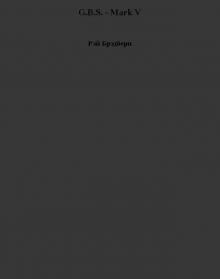 G.B.S. - Mark V
G.B.S. - Mark V The Wilderness
The Wilderness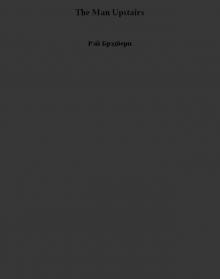 The Man Upstairs
The Man Upstairs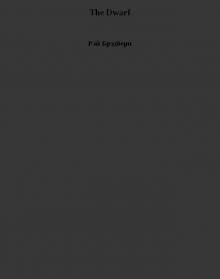 The Dwarf
The Dwarf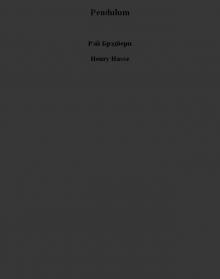 Pendulum
Pendulum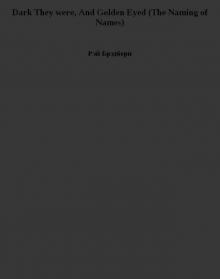 Dark They were, And Golden Eyed (The Naming of Names)
Dark They were, And Golden Eyed (The Naming of Names)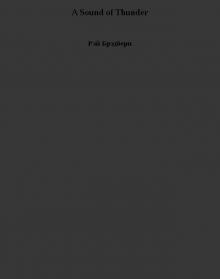 A Sound of Thunder
A Sound of Thunder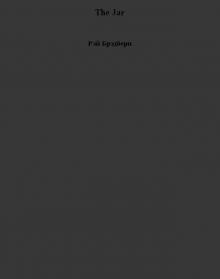 The Jar
The Jar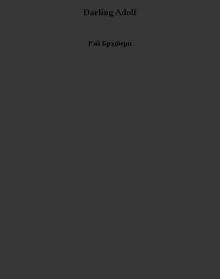 Darling Adolf
Darling Adolf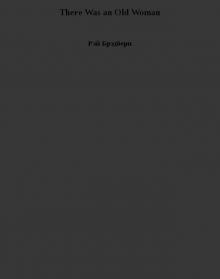 There Was an Old Woman
There Was an Old Woman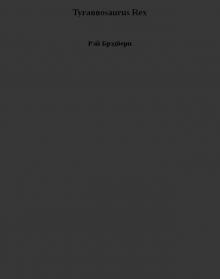 Tyrannosaurus Rex
Tyrannosaurus Rex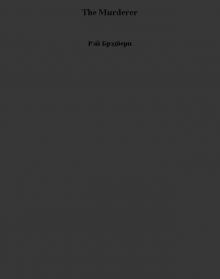 The Murderer
The Murderer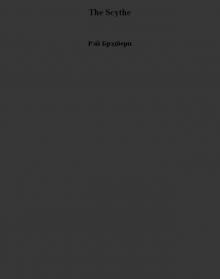 The Scythe
The Scythe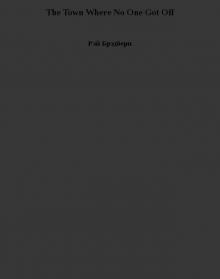 The Town Where No One Got Off
The Town Where No One Got Off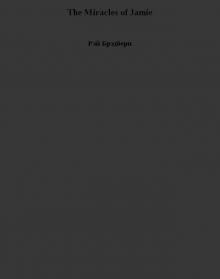 The Miracles of Jamie
The Miracles of Jamie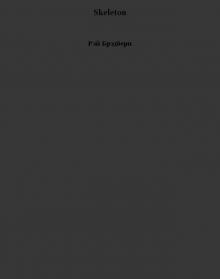 Skeleton
Skeleton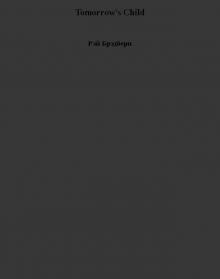 Tomorrow's Child
Tomorrow's Child The Machineries of Joy
The Machineries of Joy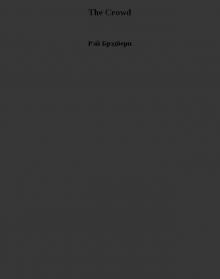 The Crowd
The Crowd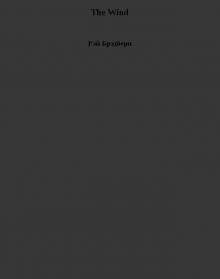 The Wind
The Wind The Wonderful Ice Cream Suit
The Wonderful Ice Cream Suit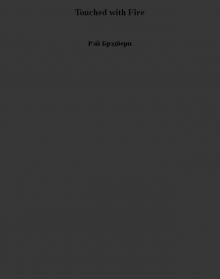 Touched with Fire
Touched with Fire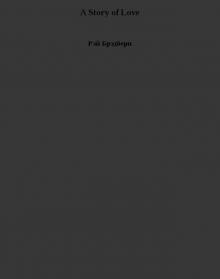 A Story of Love
A Story of Love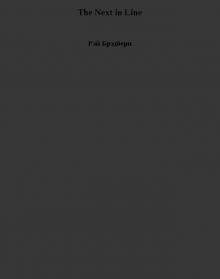 The Next in Line
The Next in Line The Small Assassin
The Small Assassin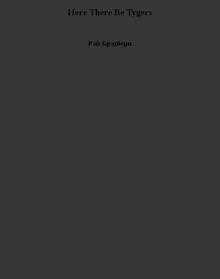 Here There Be Tygers
Here There Be Tygers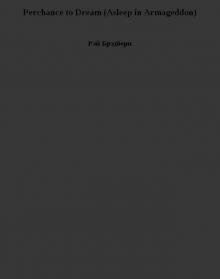 Perchance to Dream (Asleep in Armageddon)
Perchance to Dream (Asleep in Armageddon)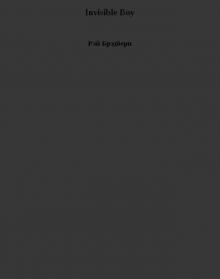 Invisible Boy
Invisible Boy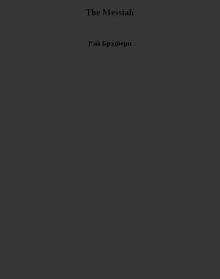 The Messiah
The Messiah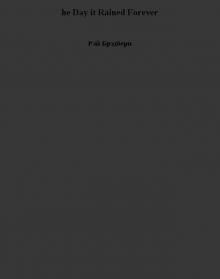 he Day it Rained Forever
he Day it Rained Forever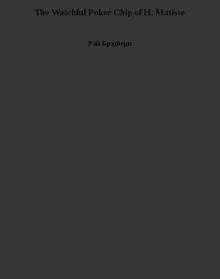 The Watchful Poker Chip of H. Matisse
The Watchful Poker Chip of H. Matisse Jack-In-The-Box
Jack-In-The-Box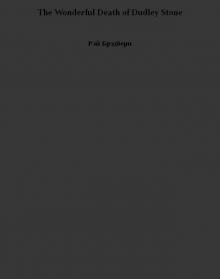 The Wonderful Death of Dudley Stone
The Wonderful Death of Dudley Stone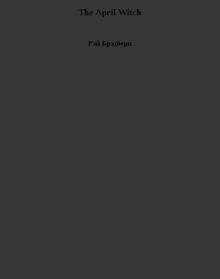 The April Witch
The April Witch